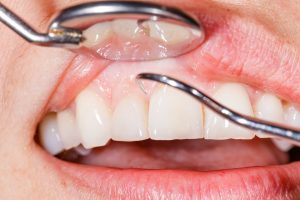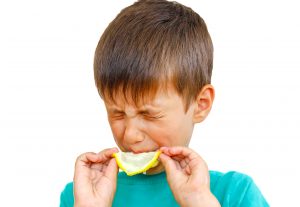There are about four main things you can do to keep your teeth healthy and in your mouth for your whole life:
- Diet: If you have three meals a day and nothing that contains sugar in between it is very unlikely you will get cavities. The more things with sugar you have between meals (fruit, juice, sugared coffee, soft drinks, etc.) the more cavities you are likely to get.
- Cleaning: To prevent gum disease, you have to floss. Once a day is usually enough. It makes your breath nice and your gums strong.
- Strong Teeth and Fillings: If you have old fillings or your teeth are starting to crack, it is important to have them strengthened before problems occur. If you wait until things begin to hurt, treatment can become much more complicated…and expensive!
- Regular Visits: Even when everything has been fixed, you have to come and have your teeth cleaned and examined regularly. It’s the only way we can have a chance to find little things before they become big things.
That’s it. Do those things and you’ll probably have your teeth when you’re old and gray!
If you, your family or friends need dental care, we would be honored to provide you with state-of-the-art dental care in our modern dental practice. Refer someone you love to someone you trust!
Presented as a service to the community by Doctors Hoover and Yanda,
39 Milford Drive, Hudson, Ohio 44236. 330-650-0360. www.drshooverandyanda.com


 When compared with nondrinkers, men and women who had one or more alcoholic drinks per day had an overabundance of oral bacteria linked to gum disease, some cancers, and heart disease. Alcohol drinkers also had fewer bacteria known to check the growth of other, harmful germs. These are the main findings of a study published in the journal Microbiome.
When compared with nondrinkers, men and women who had one or more alcoholic drinks per day had an overabundance of oral bacteria linked to gum disease, some cancers, and heart disease. Alcohol drinkers also had fewer bacteria known to check the growth of other, harmful germs. These are the main findings of a study published in the journal Microbiome. Clinical studies have shown that chewing sugarless gum for 20 minutes following meals can help prevent tooth decay.
Clinical studies have shown that chewing sugarless gum for 20 minutes following meals can help prevent tooth decay. ment: Talk to your dentist about when is the right time to replace your mouthguard, but replace it immediately if it shows sign of wear, is damaged or ill-fitting. Teens and children may need to replace their mouthguards more often because their mouths are still growing and changing. Between games, it’s important to keep your mouthguard clean and dry. Here are some tips for making sure your mouthguard is always ready to go:
ment: Talk to your dentist about when is the right time to replace your mouthguard, but replace it immediately if it shows sign of wear, is damaged or ill-fitting. Teens and children may need to replace their mouthguards more often because their mouths are still growing and changing. Between games, it’s important to keep your mouthguard clean and dry. Here are some tips for making sure your mouthguard is always ready to go: Mouthguards help cushion a blow to the face, minimizing the risk of broken teeth and injuries to your lips, tongue, face or jaw. They typically cover the upper teeth and are a great way to protect the soft tissues of your tongue, lips and cheek lining. Your top teeth take the brunt of trauma because they stick out more. Your bottom teeth are a little more protected because they are further back.
Mouthguards help cushion a blow to the face, minimizing the risk of broken teeth and injuries to your lips, tongue, face or jaw. They typically cover the upper teeth and are a great way to protect the soft tissues of your tongue, lips and cheek lining. Your top teeth take the brunt of trauma because they stick out more. Your bottom teeth are a little more protected because they are further back. Poor maternal oral health can have significant impacts on a woman’s overall health and the health of her children.
Poor maternal oral health can have significant impacts on a woman’s overall health and the health of her children.
 Radiography.
Radiography. and clogging of the arteries with fatty substances called lipids. Immune cells stick to the walls of blood vessels, scavenge lipids, and multiply. The blood vessel walls inflame and thicken as the smooth muscle cells lining them change, swelling and dividing to create plaques, clogs, and warty growths called atheromas.
and clogging of the arteries with fatty substances called lipids. Immune cells stick to the walls of blood vessels, scavenge lipids, and multiply. The blood vessel walls inflame and thicken as the smooth muscle cells lining them change, swelling and dividing to create plaques, clogs, and warty growths called atheromas. them over a prolonged period and holding them in the mouth is not good. The acid dissolves minerals in the enamel, making it thinner.
them over a prolonged period and holding them in the mouth is not good. The acid dissolves minerals in the enamel, making it thinner.